House in Porto features concrete floors that double as kitchen worktops
A concrete kitchen worktop doubles up as a dining room floor inside this renovated house in Porto by Portuguese studio Ezzo (+ movie).
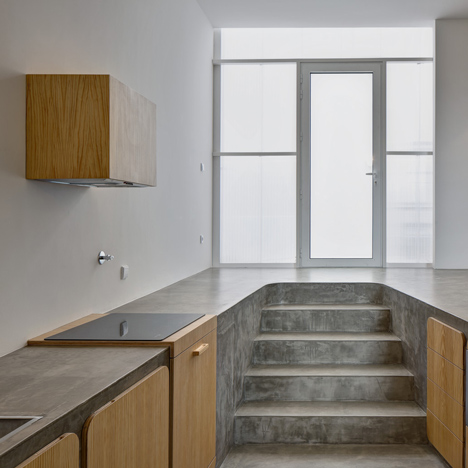
Named Flower House, the project involved demolishing and rebuilding the building's upper storeys, as well as refurbishing the existing ground floor to create sunken zones for the kitchen and living room.
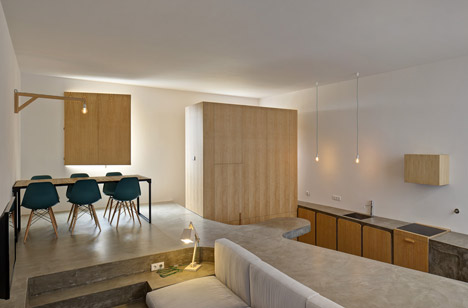
"The project was aimed at creating a series of flowing, contemporary spaces, allowing a greater degree of flexibility and linking the internal spaces of the ground floor in just one: living, dining and kitchen," said Ezzo.
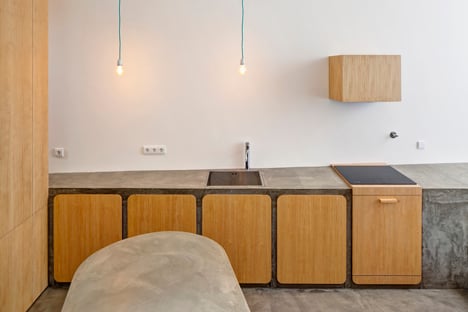
Kitchen cabinets are slotted beneath the concrete floor, while a small breakfast counter is created by an extended section of the same surface.
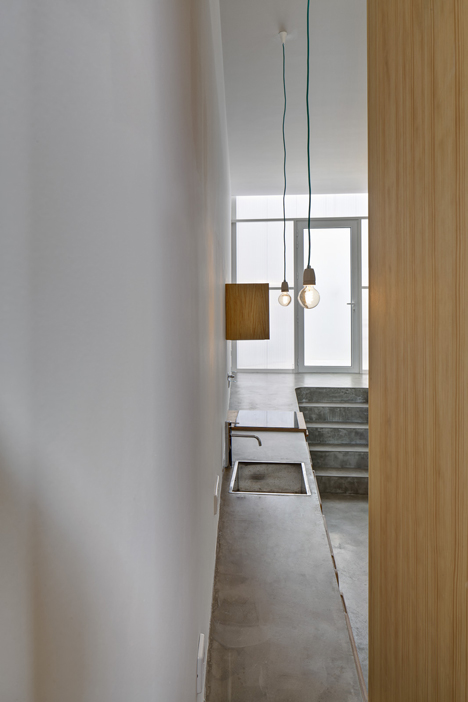
The concrete was hand-poured on site and has been finished with a waterproof coating to give it a polished look.
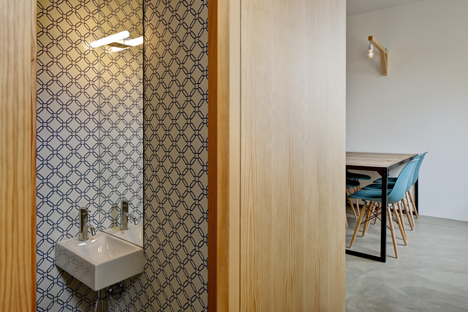
The hollowed-out living area sits adjacent to the kitchen, whilst a dining area and small bathroom are positioned just behind.
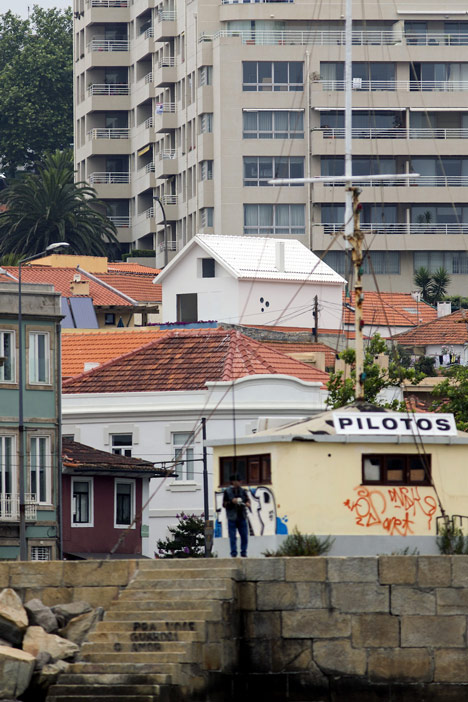
The house's new upper storeys are contained within a traditional vernacular form with a gabled roof, but the exterior has been painted entirely white.
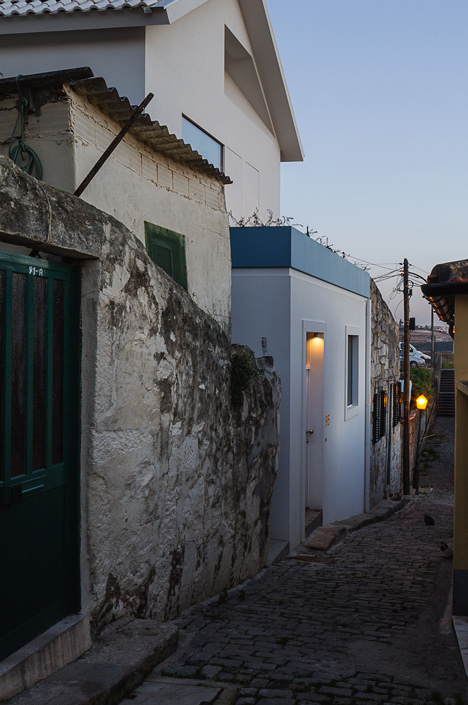
"The core ambition of the scheme was to create a dwelling, which, over time, would come to reflect an approach to contemporary renovation work," explained the architects.
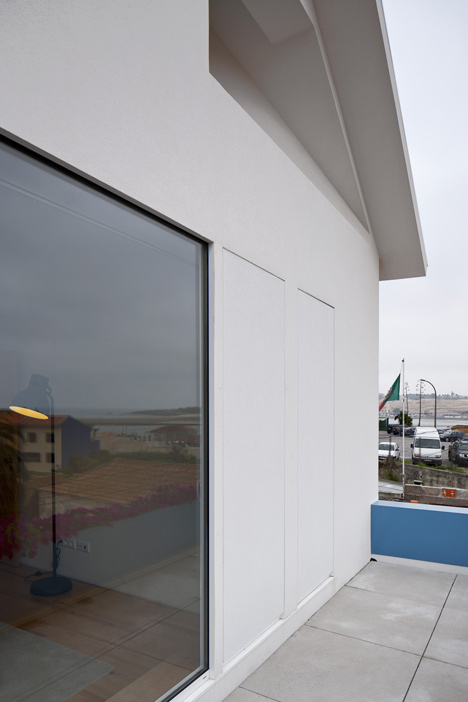
The first floor accommodates a pair of bedrooms that open out onto a shared balcony, overlooking the surrounding city rooftops. Both bedrooms feature built-in storage space.
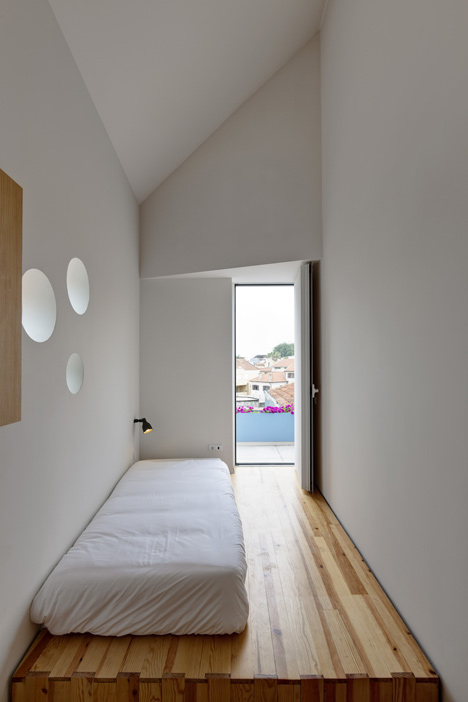
A bathroom with bright blue walls is located on the left hand side of the landing, while a wooden ladder leads up to a study room and seating area on the top floor.
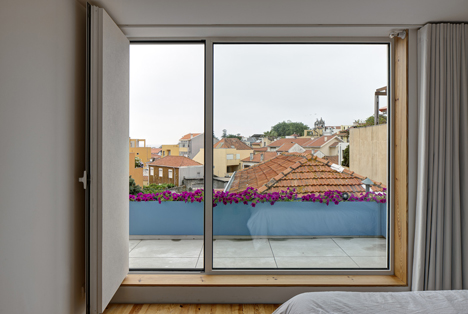
A courtyard is located at the back of the house and is surrounded by walls clad in polycarbonate plastic panels.
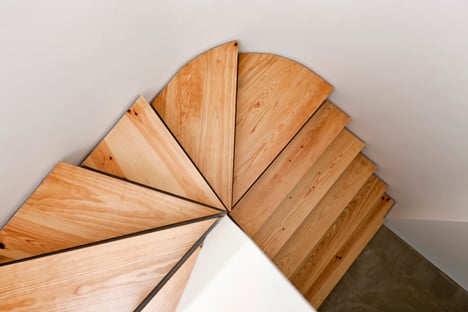
Photography is by João Ferrand.
Here is some information from the architect:
Flower House
Flower House involved the remodelling of a small old house to provide space to accommodate a single client. The scheme included the refurbishment of the existing ground floor, demolished of the 1st floor as well as the construction of a new one.
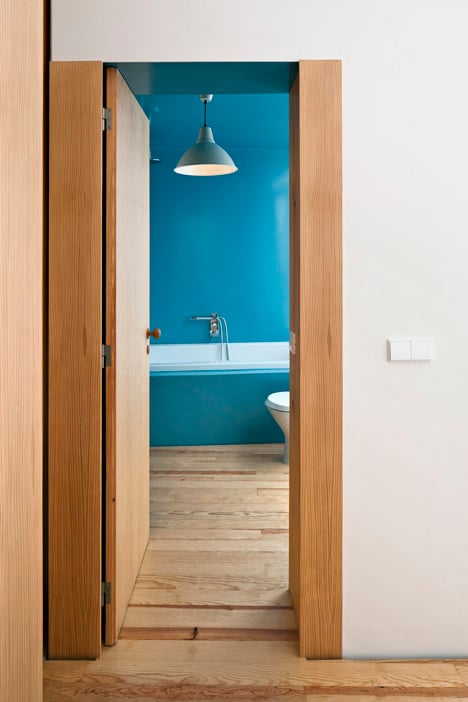
The building is set within heritage site, which has drawn out a unique response to the history and settings. The building geometry, orientation and size is driven by the site constraints.
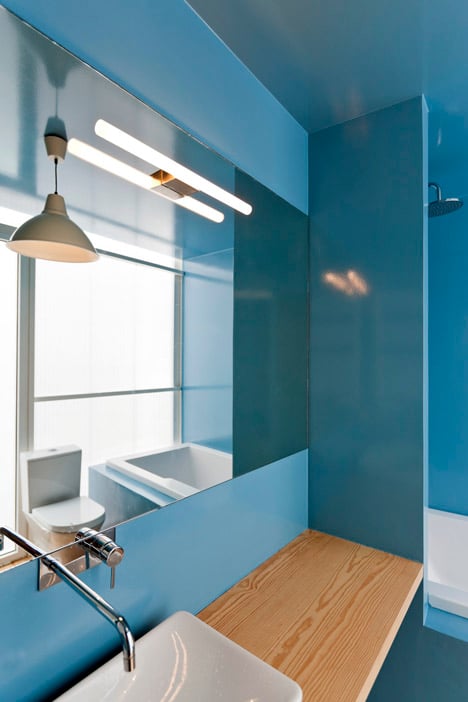
At the site, the existing buildings are idiosyncratic of their type, with flank elevations and roof profiles, which run the breadth of the neighbourhood of Foz Velha. These buildings are detailed in a utilitarian manner, with an honesty of material and detailing one would expect.
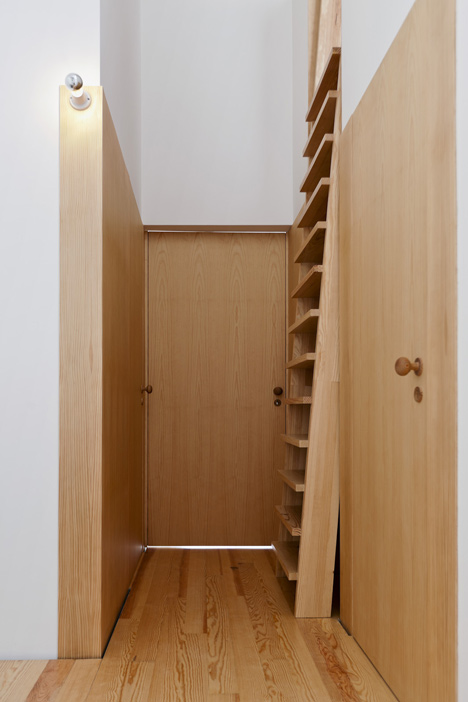
In responding to this condition, the design of the new building make clear reference to their historical parts. A two storey dwelling with character and personality, respectful of the existing neighbourhood, and taking advantage of the views.
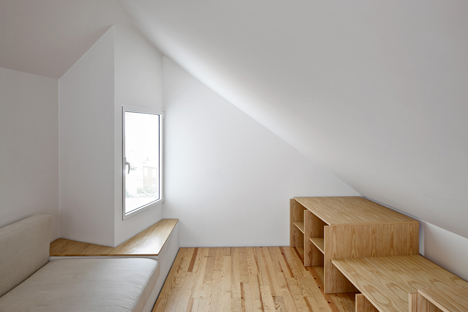
In the interior the project was aimed at creating a series of flowing, contemporary spaces, allowing a greater degree of flexibility, linking the internal spaces of the ground floor in just one: living, dining and kitchen. Two different stairs ensures the connectivity between ground floor living spaces and upper floors of bedrooms and study space.
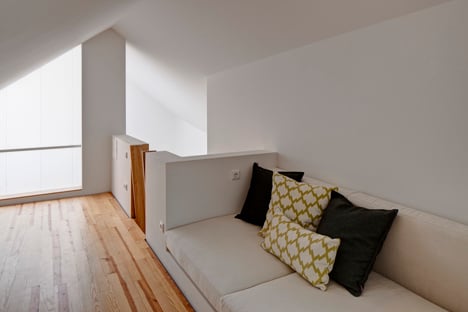
The core ambition of the scheme was to create a dwelling, which, over time, would come to reflect an approach to contemporary renovation work and create a flexible environment for who will live there.
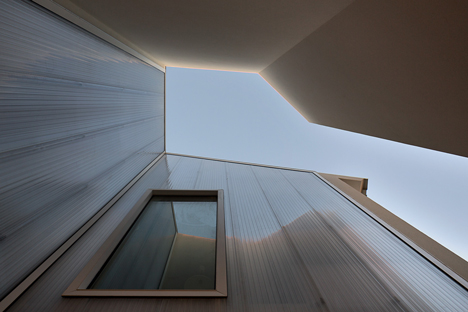
Accessible via a path with only 2 m wide, flanked by old houses, externally, the building is wrapped in a homogenous white skin, which wraps up from the landscape.
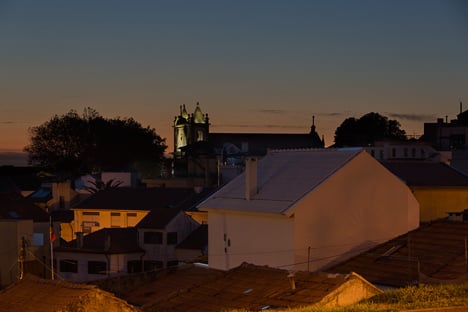
This relationship of building to street retains those historic associations described, and similarly allows for a contemporary sculptural form to sit comfortably within its context.
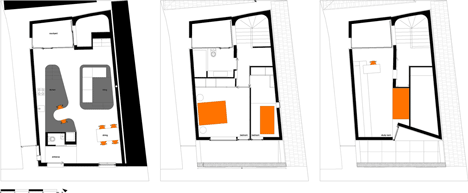
Project: Flower House
Architects: EZZO - César Machado Moreira
Collaborator: João Pedro Leal
Location: Porto, Portugal
Project Area: 120 sqm
Project year: 2010/2013
Engineering: Penman Ldª
Constructor: Van Urbis